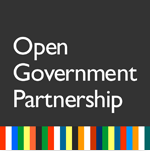 On 22 April the South African National Department of Public Service and Administration (NDPSA)which is the custodian of the Open Government Partnership in South Africa, released SA's OGP self assessment report. The report documents the success that OGP SA has had in the past 12 months.
On 22 April the South African National Department of Public Service and Administration (NDPSA)which is the custodian of the Open Government Partnership in South Africa, released SA's OGP self assessment report. The report documents the success that OGP SA has had in the past 12 months.
To comply with OGP membership criteria, member countries should comply with several regulations one of which is to "publish a progress report approximately three months after the end of the 12-month OGP implementation cycle".
Furthermore, this report should assess government performance in living up to its OGP commitments, according to the substance and timelines elaborated in its country action plan. This report should be made publicly available in local languages and in English and deposited on the OGP portal.
However, the Open Democracy Advice Centre (ODAC) has issued a statement scoring SA OGP "two out of seven" for performance. The Centre states that SA OGP's self assessment report, released on Monday the 22nd of April, shows little progress on open government. In addition ODAC observes that the government set up seven commitments as part of the 'race to the top' on transparency and openness, but only reported successful achievement of two of them.
The centre does take the opportunity to applaud SA OGP for "efforts of the government to spread information on the OGP through its structures. Consultation on the progress of the government plan has improved significantly. We hope to see more progress from South Africa at the OGP meeting in Kenya in May."
Read ODAC's assessment below.
Implementation results against commitments:
1. Develop a Citizen Participation guideline for Public Sector departments that would ensure that every public sector department across all spheres have a functional, resourced and capacitated citizen engagement unit which regularly and proactively engage with civil society.
The citizen participation guidelines having been developed is a welcome move forward. We look forward to the government sharing these guidelines with us.
2. Formalise partnerships with civil society organisations in all nine provinces to establish Service Delivery Improvement Forums (SDIFs) at locallevel to provide timely citizen report cards on service delivery levels at community level, especially in relation to primary health care, water, sanitation, environmental management and housing.
No SDIFs have been established. We encourage progress on this important commitment.
3. Enhance the capacity and capabilities of communities to access and claim their socio-economic rights through the roll-out of national public education campaigns, specifically apublic outreach campaign on Know Your Service Rights and Responsibilities (KYSR&R) to inform citizens about their service rights, responsibilities, and legal mechanisms available to hold government accountable.
We welcome the ongoing distribution of booklets.
4. Enhance national integrity through institutional capacity-building of National Anti-Corruption Forum (NACF) and Anti-Corruption Hotline.
The Department appear to have reworked this commitment, as a commitment to train officials in anti corruption work, which they have done. However, there hasbeen no capacity building of the NACF, which has in fact not met in some time. The last summit was in 2011 (NOT in 2003 - a typo in a previous release of this statement), and as we are represented on the NACF, we can confidently say that no summits have taken place since. We cannot comment on the Anti Corruption Hotline.
5. Approve guidelines on sanctions for corruption related cases.
To our knowledge, no guidelines have been released.
6. Enhance the involvement of civil society at every stage of the budgetary process across all spheres of government to enhance the progressive realisation of socioeconomic rights and enable citizens to track public expenditure.
We recognize and comment the excellent ongoing work by the Department of Finance in this regard.
7. Explore the feasibility of establishing a single agency mandated by Government to develop a comprehensive and publicly accessible portal of environmental management information.
This Commitment has not been addressed. The issue of establishing a portal was referred to the Minister for the Environment, but no progress has been made. Progress on the Department of Water Affairs making the Blue Drop Reports available, which deal with water quality, and a Provincial initiative around environmental information, are not a portal of environmental information established by a single agency.
The eighth commitment is not mentioned in the report - developing and implementing an accountability/consequences management framework for public servants.
For further comment on the statement call Alison Tilley on 071 671 8654






 On 22 April the South African National Department of Public Service and Administration (NDPSA)which is the custodian of the Open Government Partnership in South Africa, released
On 22 April the South African National Department of Public Service and Administration (NDPSA)which is the custodian of the Open Government Partnership in South Africa, released 